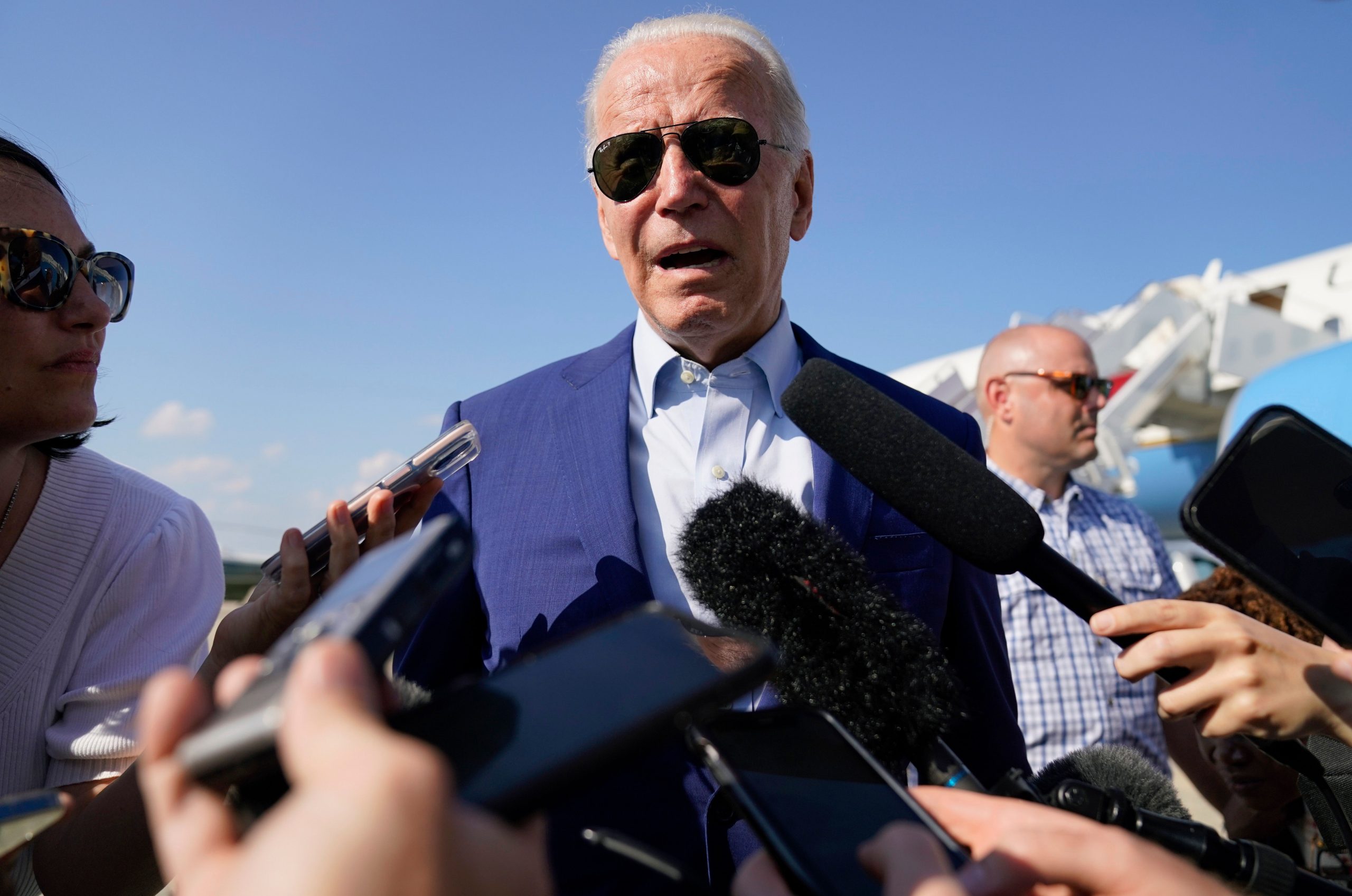US President Joe Biden spoke to 60 Minutes about the nation’s commitment to defend the democratic Taiwanese government, if China decides to attack – as many have worried about in the wake of the Russia-Ukraine war.
“What should Chinese President Xi know about your commitment to Taiwan?”, correspondent Scott Pelley asked Biden, to which the 46th President of the United States replied “We agree with what we signed onto a long time ago. And that there’s one China policy, and Taiwan makes their own judgments about their independence. We are not moving– we’re not encouraging their being independent. We’re not– that– that’s their decision.”
Pelley pressed, asking “But would U.S. forces defend the island?”, and Biden responded, “Yes, if in fact there was an unprecedented attack”. The 60 Minutes correspondent then drew a parallel with Ukraine, and asked “U.S. forces, U.S. men and women would defend Taiwan in the event of a Chinese invasion?” To this, Biden replied in the affirmative.
Also Read | What is UNGA, main policymaking organ of United Nations?
However, after Biden’s interview, a White House official reiterated the nation’s “strategic ambiguity” which it maintains in the China-Taiwan conflict. As things stand, the Taiwan Relations Act makes the US obligated to equip the nation to defend itself. This is not the first time the White House has had to backtrack Biden’s comments, and it isn’t even the first instance where the president’s comments have gone against the nation’s official stance.
Here are five times the White House has had to backtrack Biden’s comments.
Hey Joe, don’t lump Taiwan in with NATO
In August 2021, Biden told ABC News in an interview “We have made, kept every commitment. We made a sacred commitment to article 5 that if in fact anyone were to invade or take action against our Nato allies, we would respond. Same with Japan, same with South Korea, same with Taiwan. It’s not even comparable to talk about that.”
The US had an article 5 agreement with Taiwan from 1954 to 1979, but currently is only obligated to equip the island to defend itself.
Meanwhile, article 5 of the NATO agreement stipulates that an attack on an ally is considered to be an attack on that nation, and demands a response.
A senior official in the Biden administration had to clarify “policy with regard to Taiwan has not changed”, while National Security Advisor Jake Sullivan said, “We believe our commitment to Taiwan … remains as strong as it’s ever been”.
How committed is Biden to Taiwan’s defence?
During a townhall event last October, CNN’s Anderson Cooper asked “Are you saying that the United States would come to Taiwan’s defense if China attacked?”, and Biden replied in the affirmative.
Jen Psaki, then-White House Press Secretary had to clean up after, explaining there was no change in the US policy towards Taiwan.
Not appropriate to take Taiwan by force
In May 2022, Biden was asked – during a joint press conference with Japanese Prime Minister Fumio Kishida – about his stance on Taiwan and China, to which the POTUS replied “But the idea that that can be taken by force, just taken by force. It’s just not — it’s just not appropriate.”
A spokesperson later clarified to Fox News that this was a reference to the Taiwan Relations Act, which allowed the US to equip the nation to defend itself against China.
Putin out?
Biden, when closing a speech in Warsaw’s Royal Castle, in March 2022, said of Russian President Vladimir Putin, “For God’s sake, this man cannot remain in power.”
The White House was forced to clarify via a statement, saying “The President’s point was that Putin cannot be allowed to exercise power over his neighbours or the region. He was not discussing Putin’s power in Russia, or regime change.”
Crisis at the gates
Biden, in April 2021, referred to the influx of migrant children through the southern border of the US as a “crisis”.
Also Read | Donald Trump in Ohio: Political repression in America worse than ever
The POTUS when asked about the cap on refugees, said, “The problem was that the refugee part was working on the crisis that ended up on the border with young people and we couldn’t do two things at once. And now we’re going to increase the numbers”.
A White House official later clarified to CNN, “No, there is no change in position. Children coming to our border seeking refuge from violence, economic hardships and other dire circumstances is not a crisis”, and explained that Biden was referring to the “crisis in Central America — the dire circumstances so many are fleeing from. He was not referring to the Federal Government’s response.”






